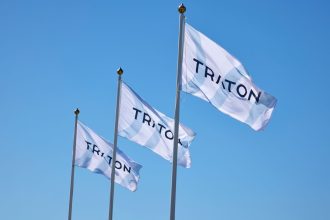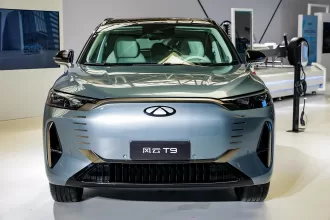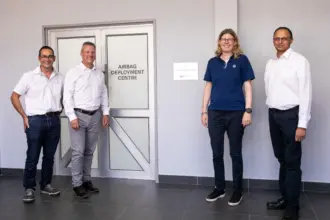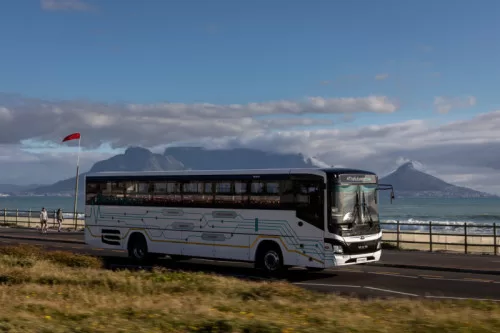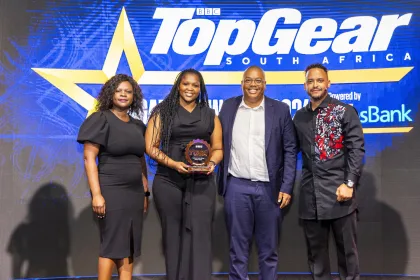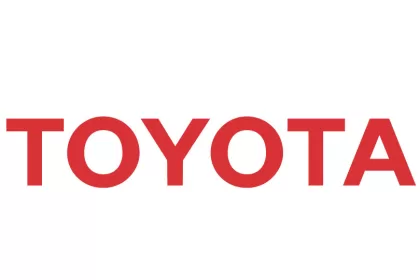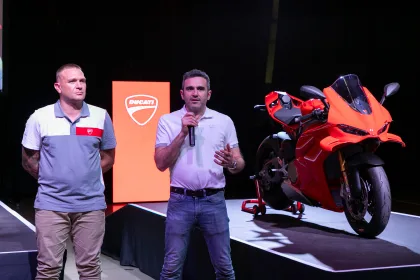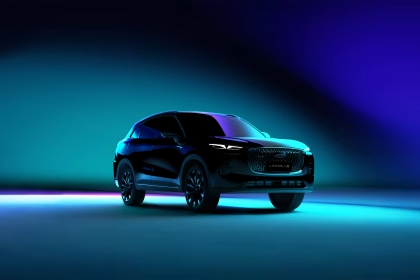Making traffic in cities around the world even safer, quieter, and cleaner is a clear goal of MAN Truck & Bus. The company has now taken an important step toward this goal with the handover of the first all-electric complete bus in Cape Town. The Lion’s Explorer E vehicle delivered in South Africa is based on the new Lion’s Chassis E, which is scheduled to go into series production from 2024. What is special in this case is that, unlike in Europe, where MAN produces and sells complete buses, the company mainly offers chassis on the global market, which are then assembled into complete buses in the country by certified body manufacturers. In the case of the Lion’s Explorer E, however, MAN not “only” supplied the chassis, but also built the body according to the customer’s wishes and market requirements.
“It’s a special experience for each of us when we hand over a new vehicle or technology to a customer for the very first time,” says Alexander Vlaskamp, CEO of MAN Truck & Bus, adding: “Even more so when we make a significant contribution to more environmentally friendly mobility.” Because together with Barbaros Oktay, Head of Bus at MAN Truck & Bus, and Jan Aichinger, Managing Director of MAN Truck & Bus South Africa, Alexander Vlaskamp handed over the first Lion’s Explorer E and thus the first MAN eBus to a customer outside Europe in South Africa. The vehicle went to the operator Golden Arrow Bus Services (GABS), which will now use it for a test operation in Cape Town. The transport company’s goal is to gradually convert its fleet of diesel buses to electric vehicles.
Strong together: CO2-free mobility as a goal
“Partnerships with like-minded companies are key to moving forward and making a difference. For MAN, too, CO2-free driving is a core element of its strategy and the handover of the MAN Lion’s Explorer E is a milestone along the way,” says Alexander Vlaskamp. “Our path leads from low emission to no emission. To achieve this, we are relying entirely on electric mobility in the city bus segment with the Lion’s City E in Europe – and worldwide we are doing the same with the Lion’s Chassis E. Because our responsibility for sustainable mobility does not end at Europe’s borders.”
In the case of the eBus for GABS, MAN not only supplied the chassis, but also built the body in line with the customer’s wishes, intended use, and market requirements. This was realized at the MAN Bus plant in Olifantsfontein, South Africa. The upstream assembly of the electric high-floor chassis was carried out in conjunction with the second local MAN site in Pinetown, which is particularly sustainable thanks to its climate-neutral production. “We combined the best of two worlds. In this way, we have succeeded in delivering the first electric city bus to be developed and built in South Africa, while at the same time meeting the requirements of our customer on the road to a zero-emission future,” said Jan Aichinger at the handover ceremony.
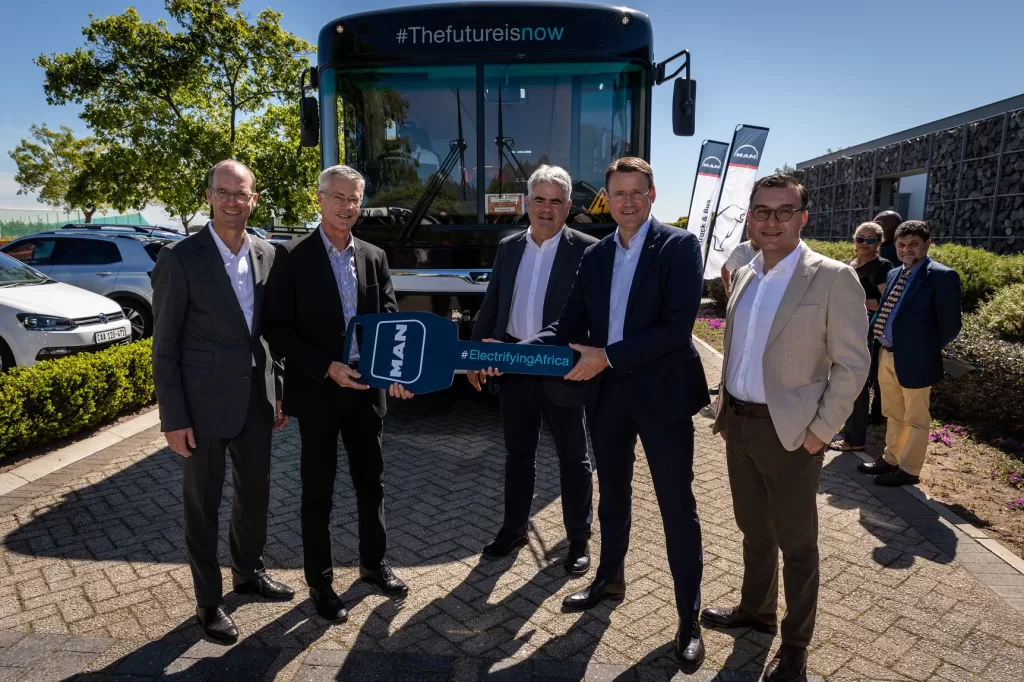
In the future, the Lion’s Explorer E will take the residents of Cape Town and its environs safely, comfortably and emission-free to their destinations. Findings and experience from the test operation, which is now beginning, will be used to continuously improve the vehicle. The eBus has four battery packs based on proven NMC technology (lithium-nickel-manganese-cobalt battery) with 80 kWh each, giving it a total installed capacity of 320 kWh. An integrated electric motor generates a peak power of up to 240 kW and thus sufficient power for use on the roads of the South African coastal city.
Lion’s Explorer 12 E perfectly tailored to the African market
“Electric buses are already on the road in South Africa. However, the special thing about the MAN Lion’s Explorer 12 E is that it was developed specifically for use here,” Barbaros Oktay makes clear. What’s more, the new model is being built entirely in South Africa. “In this way, we can ensure that the eBus perfectly meets the needs of the local transport companies and, at the same time, can also be integrated into existing processes in the best possible way. If this succeeds, electromobility will gain significant momentum in South Africa – we are convinced of this.”
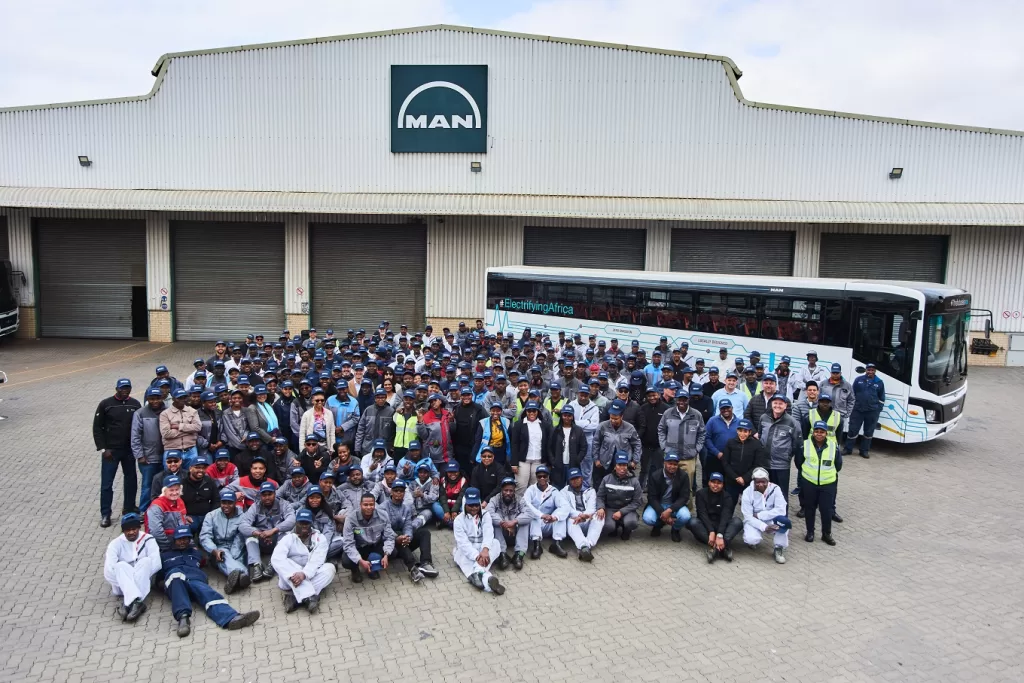
MAN Truck & Bus is the market leader in the bus business in South Africa, with a market share of just over 45 percent of bus sales (end of 2022). The goal is to maintain this position in the future with electric drives. “This requires vehicles that have innovative technologies, convincing ranges, and solutions that are tailored to the market and well thought out – like the Lion’s Explorer E,” says Oktay, adding, “We are doing everything we can to ensure that the new eBus is as well received in South Africa as our Lion’s City E is in Europe, with over 1,000 units already produced.”
For international markets: Lion’s Chassis E on proven technology
The new Lion’s Chassis E is a key building block in achieving the company’s ambitious goals outside Europe as well. “Because with our electric chassis, we now offer the MAN electric bus solution for international markets. With the chassis, bodybuilders from all over the world get the ideal basis for their all-electric models,” says Barbaros Oktay. In this way, MAN can also provide its customers with zero-emission solutions on a global level – as is now the case in South Africa. In a first step, the eChassis will be offered as a two-axle truck for low-floor applications. Versions for low-entry and intercity buses (high floor) are to follow at a later date. To ensure that it can also be used anywhere, there will be a left-hand drive and right-hand drive variant.
For the components for the eChassis, MAN is relying on the technology from the Lion’s City E. “Thanks to this technology, which has already proven itself in the field, and our many years of experience in chassis technology, we can offer our customers an innovative and efficient eMobility solution for urban and intercity transport,” says Oktay. Following the first handover in South Africa, further “demo buses” based on the Lion’s Chassis E are to be delivered in markets outside Europe in the coming months. Series production at MAN’s Polish plant in Starachowice is then scheduled to start in 2024.

